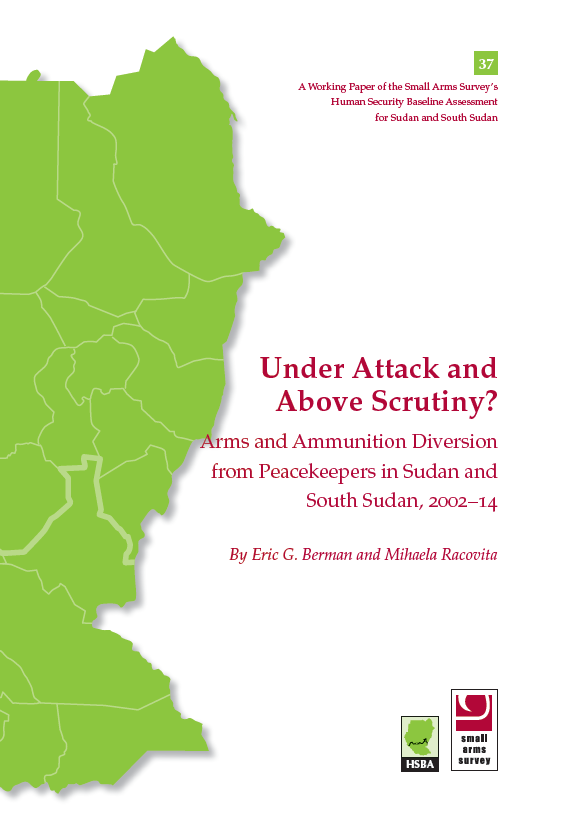
Under Attack and Above Scrutiny? Arms and Ammunition Diversion from Peacekeepers in Sudan and South Sudan, 2002-14 (HSBA Working Paper 37)
Under Attack and Above Scrutiny? Arms and Ammunition Diversion from Peacekeepers in Sudan and South Sudan, 2002-14 seeks to document the scale and scope of losses of arms and ammunition from peacekeepers in missions in Sudan and South Sudan. It builds on research the Small Arms Survey has undertaken over the past ten years on arms proliferation and arms holdings in these two countries as part of its Human Security Baseline Assessment (HSBA) project. Several HSBA studies have touched on materiel losses from peacekeepers, but until now this has never been Berman and Racovita Under Attack and Above Scrutiny? 13 a priority focus. This paper is undertaken with respect for the important role peacekeeping plays in supporting international peace and security and in providing space for the delivery of crucial humanitarian assistance. It seeks to support peacekeeping to be more effective by examining the little-studied issue of the diversion of weapons and ammunition from peace operations (see Berman and Racovita, 2013). The diversion of other materiel such as communications equipment, uniforms, and vehicles can also have negative effects on force protection, and can empower non-state armed groups. Losses of such non-lethal equipment are not insignificant. While recognizing their importance, these losses are not covered here.
Labels and definitions of diversion vary greatly and the lack of specificity or clarity obfuscates the nature and extent of such incidents. Some organizations focus specifically on the type of equipment diverted, giving preference to weapons, without including ammunition or parts. Others define this phenomenon by whether it occurs in the context of stockpile mismanagement or international transfers of weapons. For the purpose of this paper, diversion is defined as ‘the unauthorized change in possession or end use of authorized weapons, ammunition, parts, or explosives originating in holdings or transfers, both domestically or internationally’. This definition is comprehensive because it refers to a variety of military equipment involved, and covers both transfer and stockpile diversion.
The study explores the circumstances of diversion from peace operations to learn if it is possible to reduce the number or gravity of such incidents. At its heart, it addresses two questions: first, how many small arms and how much ammunition have peacekeepers in Sudan and South Sudan lost while on mission? Second, are losses of materiel (and of peacekeepers themselves) an unfortunate but unavoidable byproduct of the ‘cost of doing business’ inherent in accepting often very challenging mandates and operating in difficult environments?
Also available in ARABIC.
- More about the HSBA project
Have your say about Small Arms Survey publications and products: take 5 minutes to fill out our questionnaire.